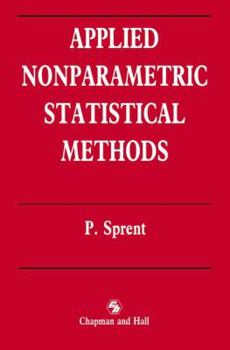Applied Nonparametric Statistical Methods
While preserving the clear, accessible style of previous editions, Applied Nonparametric Statistical Methods, Fourth Edition reflects the latest developments in computer-intensive methods that deal with intractable analytical problems and unwieldy data sets. Reorganized and with additional material, this edition begins with a brief summary of some relevant general statistical concepts and an introduction to basic ideas of nonparametric or distribution-free methods. Designed experiments, including those with factorial treatment structures, are now the focus of an entire chapter. The text also expands coverage on the analysis of survival data and the bootstrap method. The new final chapter focuses on important modern developments, such as large sample methods and computer-intensive applications. Keeping mathematics to a minimum, this text introduces nonparametric methods to undergraduate students who are taking either mainstream statistics courses or statistics courses within other disciplines. By giving the proper attention to data collection and the interpretation of analyses, it provides a full introduction to nonparametric methods. This description may be from another edition of this product.
Format:Paperback
Language:English
ISBN:940107044X
ISBN13:9789401070447
Release Date:September 2011
Publisher:Springer
Length:260 Pages
Weight:0.85 lbs.
Dimensions:0.6" x 6.1" x 9.2"
More by Michael Gorzka
Customer Reviews
0 customer rating | 0 review
Rated 4 starsVery useful
By Thriftbooks.com User,
Nearly all of traditional statistical tests assume that data points are distributed along the "normal," Gaussian bell curve. The assumption may be explicit, may be hidden inside a chi-squared phrase, or may stand silently behind discussions of mean and variance. If your data don't match that assumption, stated or not, the tests give wrong answers. Nonparametric stats work without that assumption. In fact, most work without...
0Report
































